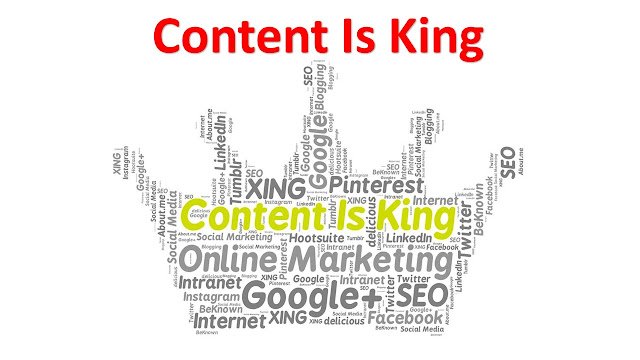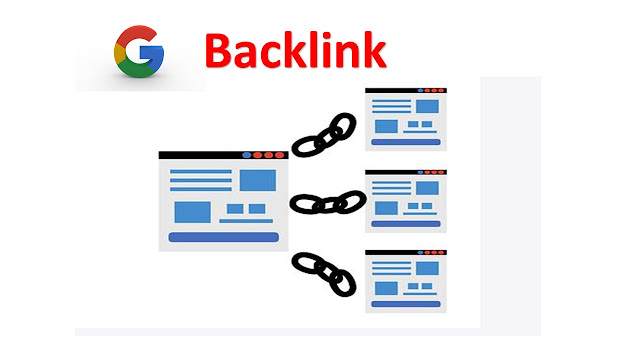Do you know that Google has over 200 ranking factors? Google is the world's most popular search engine by far.
With over 5.14 billion searches per day on Google, it dominates other search engines such as Bing and Yahoo. As a result, it's understandable that you'd want to appear higher in Google search results.
However, with SEO (search engine optimization) changing on a regular basis, it can be difficult to implement and keep up with all of the changes.
So, which Google ranking factors are important for your website?
In this article, we'll look at ten factors that can help you improve your rankings.
Let's get started...
The Most Influential Google Ranking Factors
Many website owners would like to follow all of the ranking factors in order to achieve a higher ranking.
But what if we told you that you only needed to pay attention to a few of these factors? To assist you, I have compiled a list of the most important ranking factors you should consider for your website.
1. High-Quality Content
You've probably read somewhere that content is king. And it is unquestionably the king of Google ranking factors.
If you can create content that is unique, fresh, and useful to users, Google will place it higher on its search engine results pages (SERPs).
Google places a premium on the quality of your content. You can't expect higher rankings if your content isn't valuable, no matter how well-optimized your website is.
So, what is Google's definition of content quality?
Content that is original, one-of-a-kind, and valuable.
Google priorities content that is new and unique. You should write posts that answer your readers' questions, provide value, and are unique.
If your content is duplicated or similar to that of other websites, it may have a negative impact on your SEO. To begin with, Google may not index and rank your page.
Furthermore, if you consistently publish duplicate content, Google will slow down your website's crawling rate.
So, when you're creating content, make sure it's unique and better than the other websites ranking for the same search term.
Content Should Be Up to Date and Fresh
It's very important to improve the quality of your content and keep it fresh and up to date. You're sending a positive signal to the search engine by regularly updating your posts and adding new information. If you cover topics that involve news or trends, content freshness is critical. Google prefers pages that provide up-to-date information on such topics.
For example, if you're writing about the global health crisis, you'll want your content to include up-to-date news and research. And using Google Trends is a simple way to find the most up-to-date information to keep your content fresh.
Content-Length
One of the frequently asked questions is whether the content length is a factor in Google ranking. And the answer is, indeed, yes.
According to various studies, the length of your content has an effect on where you rank in search results. Posts with 1,890 words or more typically rank on the first page.
Word-Count-Seo-Statistic-Google-Ranking-Factor
However, there is no hard and fast rule stating that you must adhere to a word limit when writing.
A better approach would be to create content that is in-depth and covers a topic in great detail. This is due to Google's preference for pages that fully answer a user's question and offer detailed solutions.
Organization and Structure of The Content
Your blog posts should be well organized and structured when it comes to content quality. This allows your visitors to more easily read your posts and find solutions to their problems.
You can use multiple headings and subheadings (H2, H3, H4, and so on) to group your content together to improve the structure and organization of your articles.
To further organize your content, you can use HTML tags for bullets (ol) and number lists (li). This is advantageous because Google picks up on these lists and displays them as featured snippets for various keywords.
Also, consider the flow of your article to determine which section should come first. As a result, improving the structure and organization of your content will improve its readability. As a result, your site's user experience will improve, which will indirectly improve your chances of ranking higher on Google.
2. Backlinks
Backlinks are the second most important Google ranking factor after content. They are an important component of Google's ranking algorithm, and they are how the Google crawler finds your website for indexing. In fact, content and backlinks go hand in hand, as pages with no backlinks receive very little organic traffic.
Backlinks-Ranking-Factor
So, how important are backlinks for your website's SEO?
Backlinks or inbound links are essentially a vote of confidence in your website. Google totals all of the votes and determines whether your website is worthy of ranking in the top ten results.
You can increase your chances of ranking higher if you can obtain backlinks from high-authority websites. This is because acquiring these links sends a signal to Google that your content is trustworthy because multiple websites can vouch for it.
3. Intention to Search
Matching the search intent of your content is another important ranking factor for Google. What a user is looking for is referred to as search intent.
Every keyword on Google is unique, and you must understand the why behind that search query.
For example, if someone searches for the best WordPress themes, you'll notice that listicles appear in the top ten results.
Here's another case in point. If you search for "make banana bread," you'll notice that the results include recipes, how-to articles, and videos.
So, if you're going to create content on either of these topics, you need to match the search intent and create the right type of content.
Now, search intent may differ depending on the format and style of the content. For example, in some cases, Google will only show videos and infographics as top results. If you want to rank for those keywords, you should make a video or an infographic.
In addition, search intent indicates where your visitors are in the buyer journey.
Are they looking for basic information about your products, a tutorial like a how-to article, or are they at the end of the process and ready to buy?
You can answer these questions and create content that people want by matching the search intent.
4. Speed of Website Loading
Among the 200 different Google ranking factors, one that you should pay attention to is the speed of your pages. This is because, beginning in May 2021, Google will include website loading speed as one of its Core Web Vitals.
This is a list of factors that Google believes are important for user experience on your website. It will examine the speed, responsiveness, and how quickly various elements such as fonts and images load. The goal here isn't to outperform your competitors in terms of load time.
However, you should consider how quickly a page loads for your users.
Google wants your website to load quickly and provide your visitors with a positive user experience. The MonsterInsights Site Speed report can be used to test the loading speed of your website.
It will analyze your website, provide a score for mobile and desktop, display important metrics about page load times, and highlight suggestions to make your site even faster.
Using a CDN, for example, is one way to improve the loading speed of your WordPress website (content delivery network). It ensures that your web pages load quickly for your users all over the world.
Aside from that, you can look at these simple tips to improve the performance of your WordPress site.
5. Mobile Compatibility
Along with speed, another factor to consider is whether or not your site is mobile-friendly.
Since Google went mobile-first in 2019, it is critical that your website is mobile responsive. Mobile-first means that Google will now index and rank your website's mobile version.
Previously, Google would index your desktop as the primary version. With 3.7 billion mobile internet users worldwide, it's not surprising that Google has made this change.
As a result, if you want to improve your rankings, now is the time to make your website mobile-friendly.
You can begin by selecting a mobile-responsive WordPress theme. Alternatively, you can use various plugins to make your WordPress site mobile-friendly.
6. Domain Expertise
The domain authority of your website is the next Google ranking factor you should focus on (DA). It is a ranking metric that demonstrates your site's expertise on a specific topic as well as its ability to rank on search engines.
Moz creates domain authority and assigns a score between 1 and 100. The higher your domain authority, the more likely you are to rank on Google.
You can now increase the authority of your website in a variety of ways. Begin by acquiring high-quality backlinks. However, having a large number of backlinks does not always guarantee higher rankings.
This is where you must create amazing content that is relevant to your industry.
You can use MonsterInsights, the best Google Analytics WordPress plugin, to discover the most popular pages on your website to get an idea of what topics your visitors are interested in.
Then, to increase your topical authority, create high-quality content around these topics.
As a result, Google will begin to recognize your site as an expert on the subject, increasing your domain authority and ranking your pages in the top 10 search results.
7. Keyword Research
Aside from creating content and obtaining backlinks, the use of keywords on your website is one of the most visible ranking factors.
Keywords are the search terms that people use to find information on Google. As a result, it's critical that your website contains the keywords that your target audience is looking for. As a result, Google will be able to find your page in its search results.
Here are a few pointers to help you optimize your website for keywords:
Title Tags – Include your target keyword in the SEO title tags of your posts.
Meta Description – Create enticing meta descriptions that include your focus keyword so that users understand what your page is about and click on it.
Image Alt Text – Because Google cannot read images, you can use keywords in the image alt text section to explain what the image is about.
Anchor Text – Because Google uses anchor text to determine what a page is about, you can use your keywords as anchor text when linking your pages.
Use LSI Keywords – In addition to your primary keyword, people search for related terms, which are known as LSI (latent semantic indexing) keywords. By including these on your page, you're assisting Google in determining what the content is about.
Avoid Keyword Stuffing – Keyword optimization does not simply repeat your primary search term. This is known as keyword stuffing, and it is not a good SEO practice. Include your main search term a few times and then experiment with different variations.
Include Keywords in H2 and H3 – You can improve the SEO organization of your content even further by including keyword variations or LSI keywords in the H2 or H3 of your post.
Include Keyword in URL – Another method of keyword optimization is to include your keyword in the URL of your post.
8. Structure of the Website
While keyword optimization is important, you should also consider your site's structure, especially if you're just getting started with a website.
The architecture of your website is critical for crawling and indexing. It makes it easier for Google crawlers to find your website and its pages.
You can also begin by creating a sitemap in WordPress to improve the site's structure. A sitemap lists all of the important pages that you want search engines to be aware of.
It makes it easier for Google crawlers to navigate through your website, discover new content, and index your pages.
You can also assist Google in indexing your website by optimizing your WordPress robots.txt file.
A robots.txt file directs Google bots to your website and instructs them on how to crawl and index it. It is useful for indicating which pages search engine spiders should and should not crawl.
As a result, you'll save crawl quota and the bots won't visit pages that aren't required, such as the admin page.
9. Website Safety
Along with website architecture, Google now considers security to be a key ranking factor. This is the point at which you must ensure that your website is now using HTTPS, which encrypts data sent between your website and the user's browser.
In 2014, Google confirmed that HTTPS is now a ranking signal. So, if your website does not have SSL certificates and is not using HTTPS, now is a good time to update.
10. The User Experience
The final Google ranking factor we have for you is your website's overall user experience. There are numerous factors that contribute to a positive user experience.
But how does Google quantify this?
It employs an artificial intelligence program known as RankBrain, which incorporates additional ranking signals such as:
CTR (click-through rate) – This is the percentage of people who click on your website link in the search results. You can improve your rankings by increasing your CTR, especially if you're stuck in the top 5 results.
11. Bounce Rate
A high bounce rate is bad for your website. If a large number of people click on your site and then click the back button without interacting with it, Google will consider the page irrelevant and will not rank it.
12. Dwell Time
This is the amount of time a visitor spends on your site after arriving from Google search results. The longer the dwell time, the better.
While these are some of the most important ranking signals used by Google's RankBrain, there are many more. However, because the majority of them are speculative at this point, we recommend you stick to the three factors we discussed above.
I hope you found this post on the Most Important Google Ranking Factors for your website useful.











![The Best Antivirus Apps For Android - [2023] The Best Antivirus Apps For Android - [2023]](https://blogger.googleusercontent.com/img/b/R29vZ2xl/AVvXsEj3Yjm36h1U18dmYifXs9XZCUy6ch_XK0XOXf8hVW4zcVUDW0OiVXQZT0Sr77Yjep1CUOHP3OqlrMIzRJLYasizRmQUilnXjozbQ8D0iroUBbeFEUD2MwaJdGuE4RJaqrfVHFX-_OoIhOyPr_K10ky6goZUJtdqUWIOkCibIoNylnXXzR-AksQYPTQ0/s72-w640-c-h388/antivirus-android-2023.png)
![15 Travel Packing Tips For Holiday: Updated [2023] 15 Travel Packing Tips For Holiday: Updated [2023]](https://blogger.googleusercontent.com/img/b/R29vZ2xl/AVvXsEgJfOBYMtma5U34TjVvkOWNnaRwVA_ty2-tKck6tTU24-cAcOu4boybt3T_8BF66hAqzOriHVxJdRbzjLq9ZfhsMAUTQ80ja19GPktAAEnW0WPKQgsKJTXXJzIeKHYE40HeljCSC6UVTJA/s72-w640-c-h360/Travel-packing.jpg)


This comment has been removed by the author.
ReplyDelete